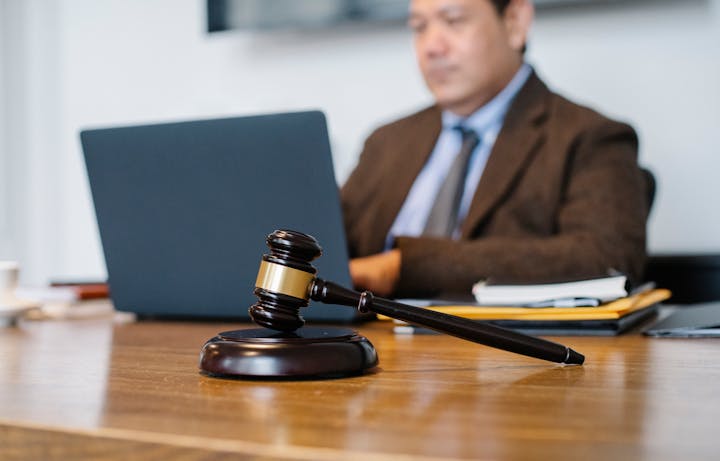Criminal Defense Attorney Vs. Personal Injury Lawyer

The legal profession is an intricate web that covers a wide range of human interactions. From property law to investment law, lawyers must understand the procedures and frameworks that govern each aspect of the legal profession. However, many lawyers overcome this difficulty by becoming specialists in a particular field.
Criminal defense attorneys and personal injury lawyers are the most prominent specialists in the legal profession. Their services are always in high demand since most lawsuits involve criminal cases and personal injury. However, their roles and modes of operation often get mixed up.
In this article, you will discover the differences between these two types of legal specialists. We will also clarify any similarities that might cause some confusion about their operations.
Legal Professions Overview
A criminal defense attorney is saddled with helping clients accused of committing crimes. Defense attorneys are usually up against public prosecutors. Hence, they must ensure that their clients enjoy every right and privilege they might be entitled to. Clients may also hire the services of criminal defense attorneys if they are being investigated for alleged crimes.
Unlike criminal defense attorneys, personal injury lawyers seek maximum relief for their clients who have been injured in accidents. Personal injury lawyers like Jassim Law in San Diego, also guide you through the process of securing wrongful death claims.
|
Criminal Defense Attorney |
Personal Injury Lawyer |
|
Represents defendants in criminal lawsuits |
Represents victims in personal injury cases |
|
Negotiates with prosecutors |
Negotiates with errant parties |
|
Seeks to exonerate clients |
Seeks to establish the defendant's culpability |
|
Majors in criminal law |
Majors in personal injury law |
|
Seeks the minimum possible sentence for client |
Seeks maximum possible compensation for client |
Roles and Responsibilities
Criminal defense attorneys and personal injury lawyers always seek the best outcomes for their clients. However, their roles and responsibilities differ.
Roles of Criminal Defense Attorneys
The roles and responsibilities of a criminal defense attorney are broad and far-reaching.
-
Plea Bargaining
In criminal investigations or cases where the prosecution has established proof of guilt, some clients hire defense attorneys to help them negotiate better plea bargains to secure lighter sentences.
-
Investigation
Criminal defense attorneys review the prosecution's evidence to find loopholes and inconsistencies that could exonerate their clients or lighten their sentences. They will also conduct investigations to find evidence or alibis that could help their clients.
Clients hire defense attorneys to help perfect their bail conditions and possibly prevent incarceration during trial. Criminal defense attorneys establish mitigating circumstances during bail hearings to secure their client's bail at the most liberal terms possible.
-
Sentencing
Criminal defense attorneys also appear at sentencing when the client is found guilty. They will present facts and evidence before the court to reduce their client's sentence.
-
Appeal
Criminal defense attorneys also file appeals when their clients have not received a fair hearing or unduly harsh sentences. They will exhaust every avenue for appeal to secure a retrial, reduced sentence, or possible pardon.
-
Pardon
Where the alleged crime incurs the death penalty, many criminal defense attorneys also seek executive pardons after exhausting their appeals. This way, they can commute the death sentence to life imprisonment instead.
Roles of Personal Injury Lawyers
Injury victims hire a personal injury lawyer to help them secure adequate compensation for their losses.
-
Negotiation
In many cases, personal injury lawyers arrange meetings between their clients and the liable party to enable them to reach an out-of-court settlement. This approach often fails, and the personal injury case goes to trial.
-
Investigation
Personal injury lawyers compile evidence to show the true extent of the losses and suffering that their clients have suffered. Some of this evidence usually includes medical reports, pictures, and financial records. This way, they increase the chances of securing higher compensation. Personal injury lawyers will also gather evidence, such as police incident reports and eyewitness accounts, to establish the burden of responsibility on the liable party.
In some cases, personal injury lawyers also conduct investigations into the activities of guilty parties. This way, they can establish a history of negligence and noncompliance to help their client's case.
Role Similarities
Criminal defense attorneys and personal injury lawyers may perform similar roles while handling their cases.
-
Trial Preparation
Depending on the nature of the lawsuit, defense attorneys and personal injury lawyers might also have to prepare their clients to face a jury. They rehearse possible questions the prosecution could throw at the defendant and other witnesses. This way, clients avoid complicating their cases or admitting guilt. They also guide clients about how they should present themselves at hearings to gain sympathy from the jury.
-
Preliminary Hearings
The lawyers appear at preliminary hearings to improve their clients’ cases. Defense attorneys try to reduce the charges proffered against their clients at indictment hearings.
-
Jury Selection
Both lawyers will also participate in jury selection or ask for a change of trial venue to ensure that their clients get a fair hearing.
Educational Background and Training
Both criminal defense attorneys and personal injury lawyers begin their careers by securing an undergraduate degree. Then, they would need relevant working experience in their preferred specializations before applying to law school.
In law school, prospective criminal defense attorneys major in criminal law, while personal injury lawyers focus on personal injury law. Once they finish law school, they must pass the bar exams before they can represent clients in lawsuits. Many state jurisdictions also require some years of working experience and other qualifications before candidates sit for the bar exams.
Key Skills and Qualities
Successful criminal defense attorneys and personal injury lawyers employ similar skills while performing their duties. The most prominent of these skills include:
-
Investigative Skills
The success of any lawsuit usually depends on available evidence. Therefore, these lawyers have strong investigative skills to help them uncover evidence supporting their case. They are experts at asking the right questions and tying up loose ends. These lawyers also know how to properly document the evidence they find and present it during hearings to help their clients.
-
Oratory Skills
Although lawsuits can be settled out of court, many still go to trials. During a trial, a lawyer's oratory skill could make all the difference in the client's case. Juries can become sympathetic when they hear stories about the client. Lawyers can also secure lighter sentences for convicted clients by making carefully crafted arguments to the judge.
-
Negotiation Skills
Criminal cases and personal injury lawsuits involve a lot of negotiation. Criminal defense attorneys and personal injury lawyers must have excellent negotiation skills to secure the best outcomes for their clients.
Cases Handled
Criminal defense attorneys handle cases involving alleged violations of the law. The most common criminal cases include:
-
Arson
-
Theft
-
Spying
-
Disturbance of public peace
-
Defamation
-
Traffic violations
-
Assault of public officials
-
Drug trafficking, possession, and related offenses
-
Murder
-
Fraud
Personal injury lawyers handle cases where a person has suffered material loss or injury after an accident. The most common lawsuits that personal injury lawyers handle involve:
-
Vehicle accidents
-
Workplace injuries
-
Industrial accidents
-
Pedestrian injuries
-
Medical malpractice
-
Dog bites
-
Negligence of duty
-
Wrongful death
Although criminal defense attorneys and personal injury lawyers handle different kinds of lawsuits, many criminal cases often involve personal injuries.
Legal Procedures and Courtroom Dynamics
While criminal lawsuits and personal injury cases have some similarities, there are clear distinctions in the way they work.
In a criminal case, the burden of proof is on the prosecutors. Prosecutors try to secure a conviction by proving that the defendant has violated the law. The prosecutor quotes the relevant sections of the law and presents supporting evidence of the allegations.
Criminal defense attorneys help the client by disputing the prosecutor's evidence and quoting relevant law sections supporting the client's actions.
Personal injury lawyers take an entirely different approach. They try to secure relief for the client by showing the full extent of their injuries.
They establish the culpability of the involved parties and show how their negligence has caused injury to the victim. Personal injury lawyers also prove the extent of losses caused by these injuries and propose a fair compensation package based on several metrics. The most common metrics for estimating appropriate compensation values include proof of earnings, salary records, and medical reports.
Personal injury lawyers could also seek punitive damages against errant parties in some personal injury lawsuits involving wrongful deaths.
Client and Interactions and Communication
There are established rules guiding lawyer and client interactions during lawsuits. These guidelines are similar for criminal defense attorneys and personal injury lawyers.
The most common guidelines include:
-
Confidentiality: Lawyers are required to treat all discussions with their clients as confidential. It is also crucial for lawyers to discuss a client's case only with authorized third parties on secure channels.
-
Transparency: During negotiations, lawyers must disclose to the client every offer the opposing parties make. This way, clients can thoroughly assess their options.
-
Consent: Lawyers must obtain the client's full consent before representing them in any lawsuit, even in pro bono cases. The terms of the lawyer-client agreement must be established before proceeding with the lawsuit.
Conclusion
Hiring a criminal defense attorney or personal injury lawyer is the safest way to protect your interests in any lawsuit. A personal injury lawyer will guide you past the intricacies of securing the compensation you seek for your injuries.


